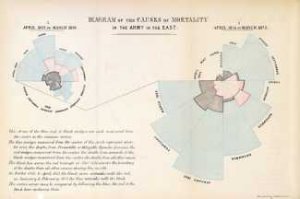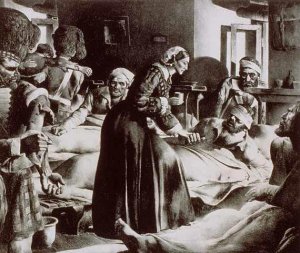By the time she was 12, she was determined to "do something worthwhile". She liked books. She enjoyed caring for sick farmers on her father's estate. Once she even saved the life of an old shepherd's dog that had broken its leg.
At the age of 16, she was sure that God was calling her to serve others. She used every spare minute to learn from nursing books she had secretly obtained. She visited hospitals in London and the surrounding area.
Her parents didn't want her working in those "dirty" hospitals, but she was determined. They did many things to try to change her mind. Her sister pretended to have fainting spells. Her mother accused her of being immoral.*
She finally reached an agreement with her father. If he would let her go to Kaiserwerth (KI zer wirth) hospital in Germany to study, she wouldn't tell anyone her plans. This way, her family wouldn't have to be "embarrassed"* by her actions.
She was an excellent student, and after her graduation, she returned to London and got a job running a hospital.
During the Crimean (cry ME un) War, she was put in charge of nursing. She went to the battlefield with 38 nurses. The hospital was a huge, dirty barracks* building. She got men to clean it up and managed to get the supplies they needed.

Nightingale diagram showing
causes of death in the war
causes of death in the war
She carried a lamp as she walked the halls of the battlefield hospital and became known as the "lady with the lamp".
She saved thousands of lives. People called her a ministering angel in the hospitals, but she herself became ill with a disease she got there.
In her later years she was not able to travel, but people came to her from all over the world for her advice.
During the Civil War, the United States asked her advice about setting up military hospitals.
She became known as the founder* of modern nursing.
This biography by Patsy Stevens, a retired teacher, was written in 2001.


 A frequent question:
A frequent question: